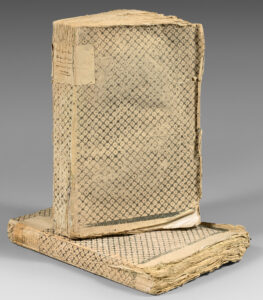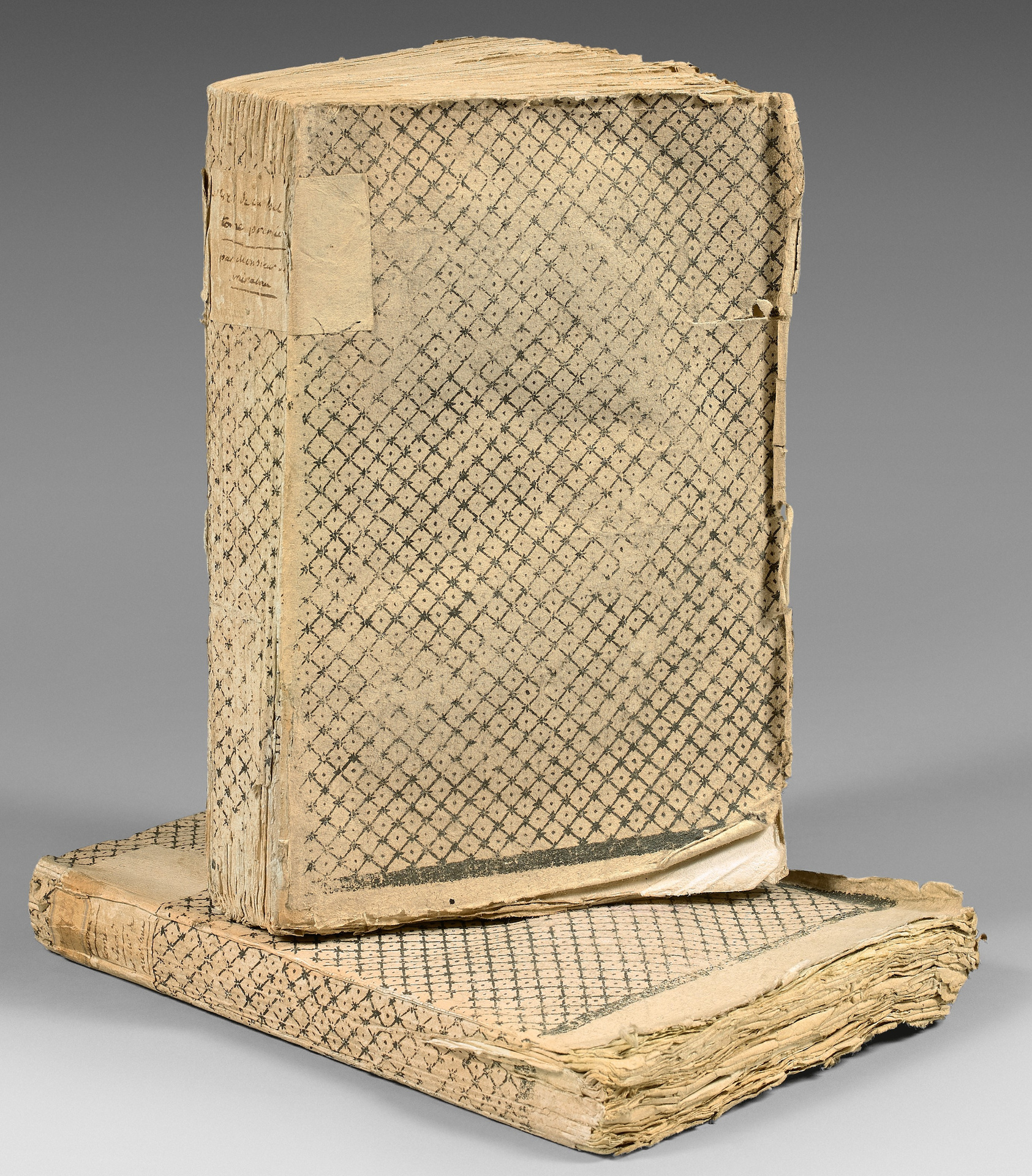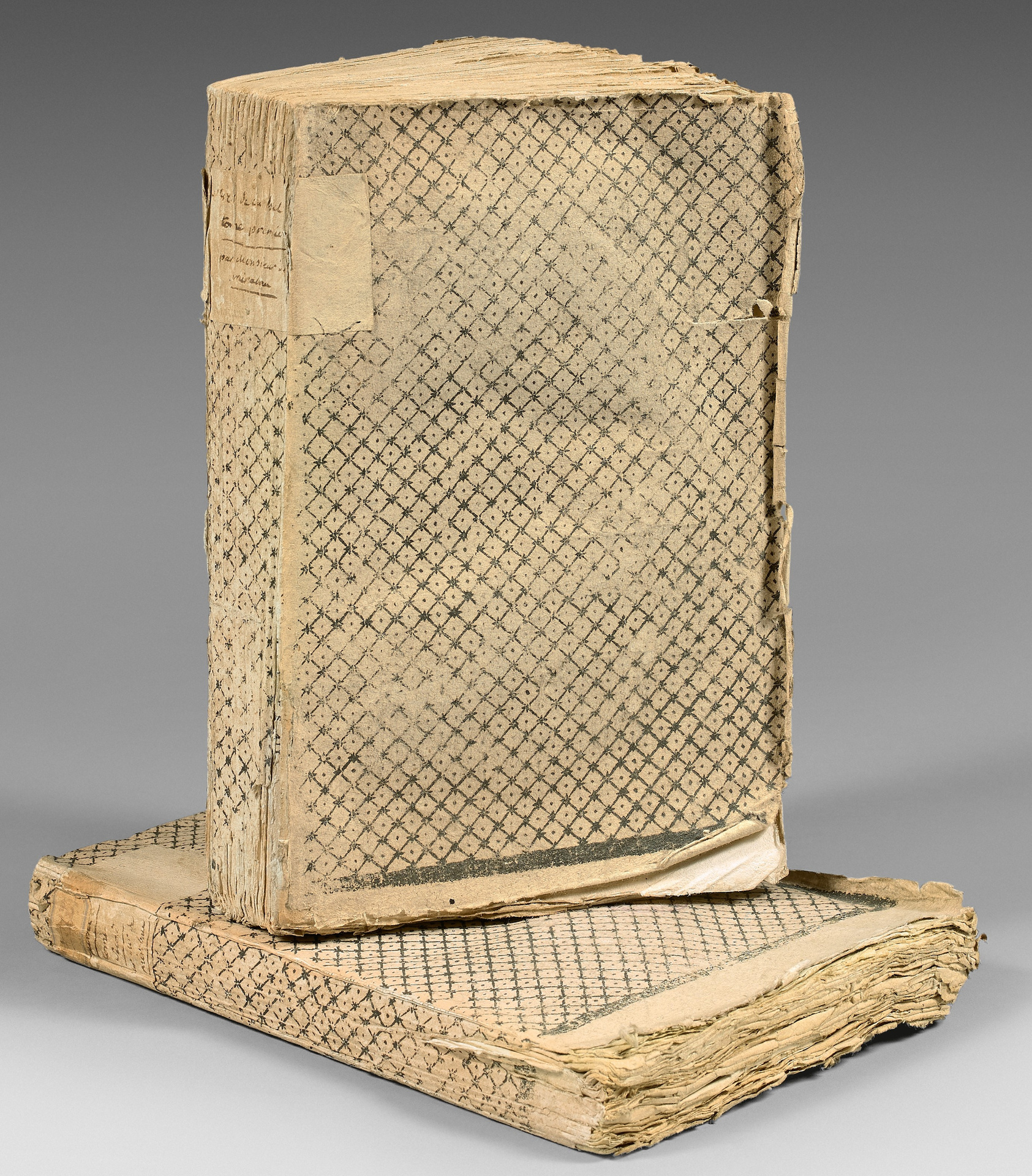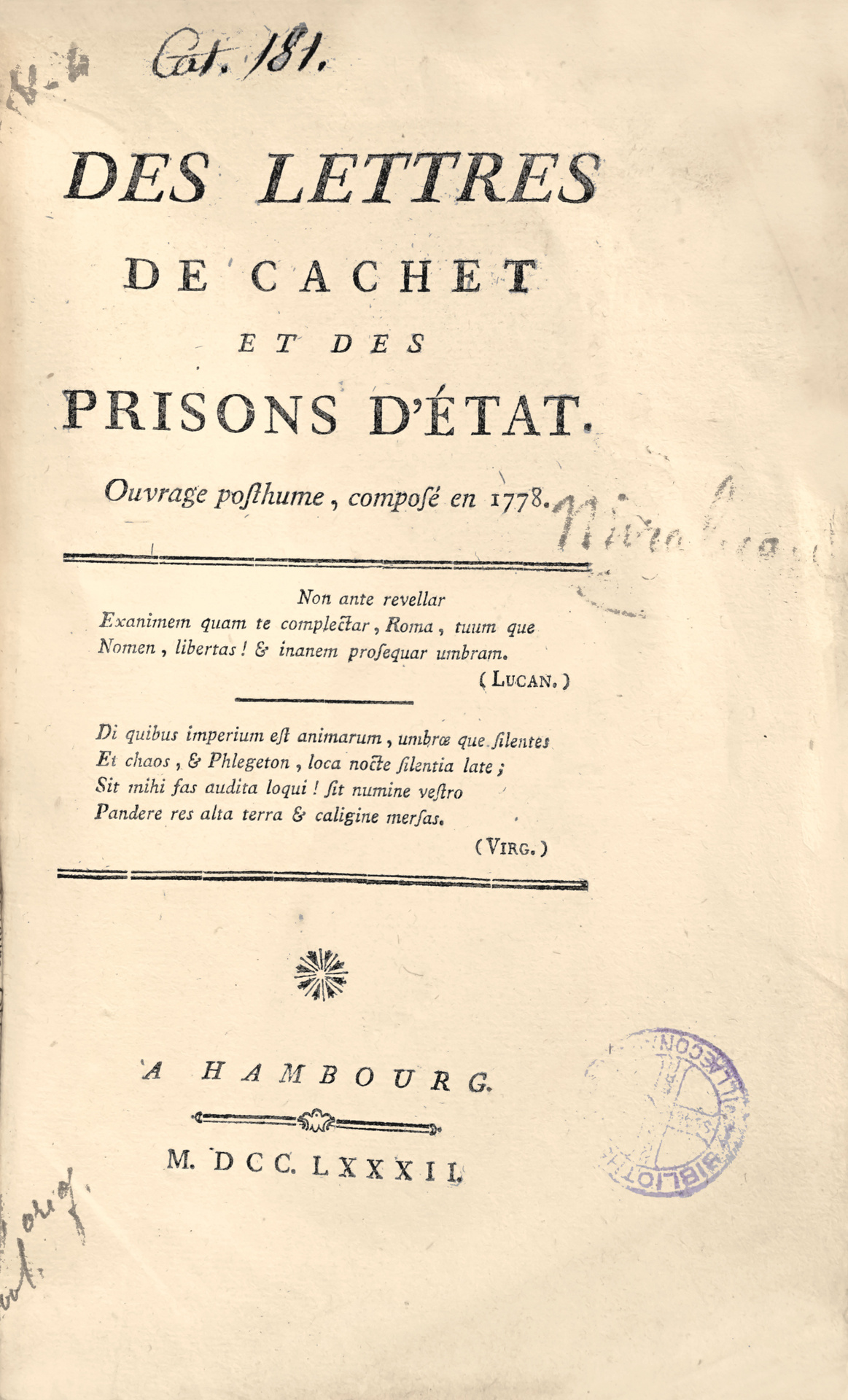Hambourg, n.n., 1782.
2 parts in 2 volumes 8vo of : I/ xiv pp., (1) l., 366 pp., (1) l. of errata; II/ 237 pp., ll. of the first quire interchanged, wet stamp of a religious library repeated on the title, p. 121 and on the last page of each volume.
Preserved untrimmed in its “dominoté paper” wrappers, title labels on spines, plexiglas box. Original wrappers.
217 x 142 mm.
First edition of Mirabeau’s Virulent work written during his detention in the Dungeon of Vincennes and speaking out against despotism.
Graesse, IV, 535; Einaudi 3932; Cioranescu 45191; Conlon 82; Bûcher 573.
Mirabeau (1749-1791) was the son of the economist Victor Riquetti de Mirabeau. A French politician, he was one of the most prominent figures of the Revolution and the most brilliant speaker of the Constituent Assembly. He had a very difficult relationship with his father and led a life of debauchery where he accumulated many debts. To get out of these debts, he was locked up in prison by letters of seal at the request of his father on several occasions.
Mirabeau wrote the Lettres de cachet in the dungeon of Vincennes where he remained locked up for three and a half years, at the same time as the Marquis de Sade. An eloquent work in which he vigorously denounced the abuses of arbitrary power, Les Lettres de cachet is a veritable indictment beginning with a history of French criminal law; Mirabeau goes on to denounce violently the organization of the prison administration at the end of the Old Régime.
“Des Lettres de cachet’ is not only an eloquent protest against despotism, a warm advocacy in favor of individual freedom, but also a real work of scholarship filled with historical examples, and which implies immense reading”. (Barbier).
“It is by history and by reason that Mirabeau fights against arbitrary detentions” (P. Negrin).
“Des Lettres de cachet deserves great praise. The principles of natural law, the basis of all society and all civilization, are exposed and developed with as much force as clarity. Mirabeau already shows himself to be a great publicist and the writer gives a foretaste of the orator”. (A. de Montor).
“This work, new denunciation of the arbitrary power, plea in favor of the individual freedom, defense of justice and humanity against despotism, had such a repercussion at the time, that Vergennes asked Prussia to stop the publication of this licentious writing, to seize it and to destroy the manuscript…” (H. Aureole, Bibliographie sur Mirabeau).
A superb copy preserved as issued, untimmed, in its original wrappers in “dominote paper”.
One of the largest copies known (height: 217 mm).
The second volume is considered as rare because it was destroyed by the Prussian authorities at the request of the French government.
Provenance: the copy comes from the library of Mr. Bidault, Gentleman of the Count of Artois, future Charles X.




